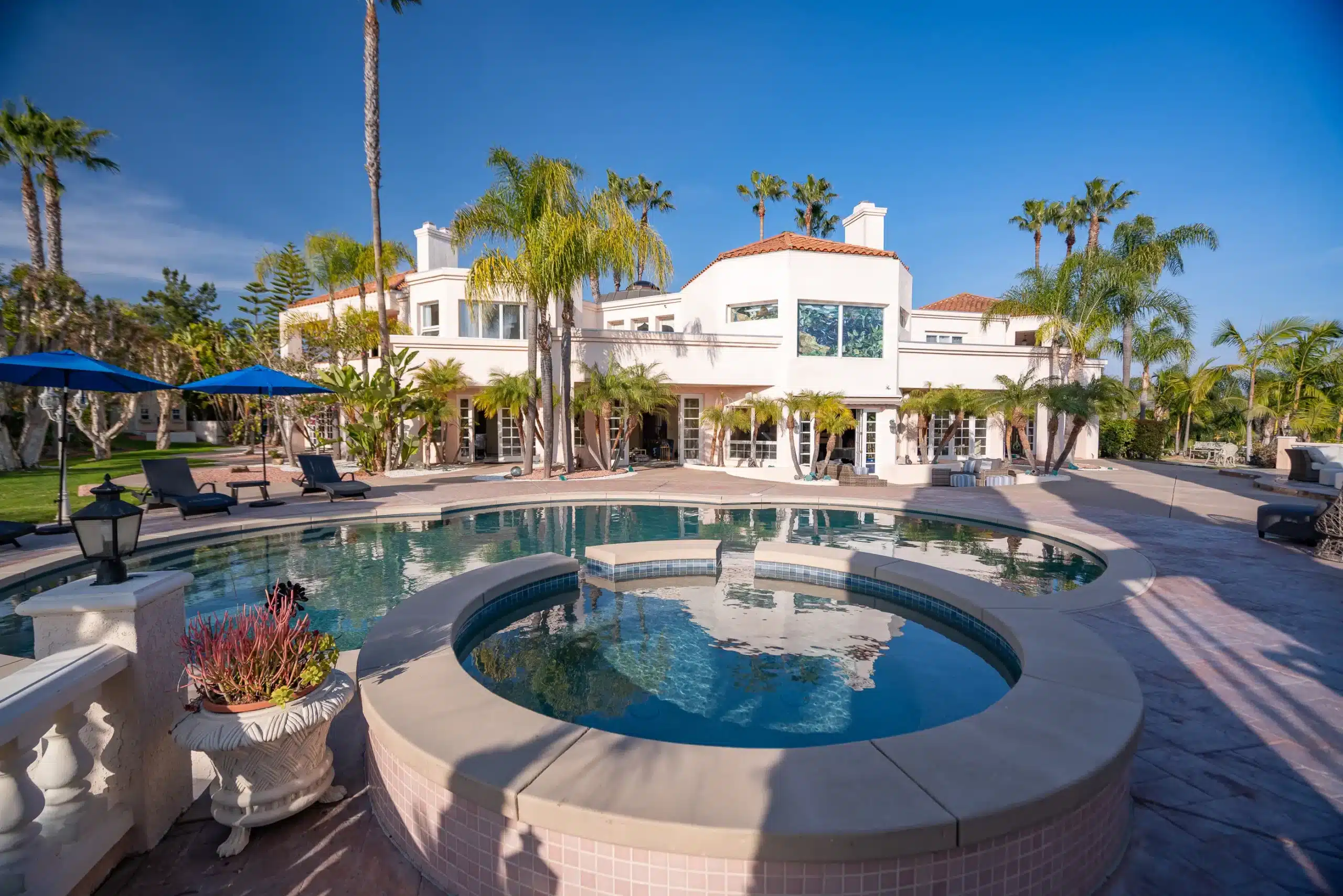Life After Rehab: Building a Fulfilling, Sober Future
Written by: Michelle Beaupre, PhD, LCSW | Reviewed by: Christian Small, MD
Completing a rehabilitation program is a significant milestone, but it’s only the beginning of the recovery journey. After rehab, life involves creating a sustainable, sober lifestyle prioritizing physical health, mental well-being, and emotional growth. This transition can be challenging and empowering as you embrace new routines, relationships, and goals.
At Villa Oasis, we understand that the journey to recovery doesn’t end when you leave treatment. That’s why we focus on equipping our clients with the tools, support, and resources they need to navigate life after rehab successfully. From managing triggers to building a supportive network, creating a fulfilling future requires commitment, planning, and access to the right resources.
Life after rehab offers opportunities to rediscover yourself and embrace a brighter future. Whether you develop a daily routine, explore new hobbies, or reconnect with loved ones, you can navigate this transformative chapter with confidence and support.

The Importance of Aftercare
Transitioning from a structured treatment program back to everyday life is a critical phase in recovery.1 This period can be filled with opportunities and challenges as individuals adapt to newfound independence. Aftercare programs are vital in bridging the gap between rehab stability and daily life’s unpredictability. These programs provide ongoing support to reinforce the skills and coping mechanisms developed during treatment, reducing the risk of relapse and helping individuals maintain their progress.
At Villa Oasis, aftercare plans are personalized to meet each individual’s unique needs. These plans often involve continued therapy, either one-on-one or in a group setting, allowing clients to address challenges as they arise while receiving professional guidance and support. Medication-assisted treatment (MAT) may also be part of an aftercare plan for individuals who require medical assistance to manage cravings or withdrawal symptoms.2 For many, transitioning to a sober living home provides a safe and substance-free environment where accountability and community support are central to maintaining sobriety.
By tailoring aftercare to each client’s needs, Villa Oasis ensures that recovery extends beyond treatment and into a fulfilling, sustainable future.
Rebuilding Your Daily Routine
Establishing a daily routine is a cornerstone of sustained sobriety. It provides structure, reduces idle time, and minimizes exposure to triggers. A well-thought-out routine fosters stability and allows individuals in recovery to focus on personal growth, physical health, and emotional well-being. At Villa Oasis, routine-building is a core part of our treatment programs, helping clients create a foundation for lasting success.
Morning Mindfulness
Starting the day with mindful practices like meditation, deep breathing, or journaling can set a positive tone. These activities encourage self-reflection and help individuals focus on their daily goals. Practicing gratitude or setting intentions can also cultivate a sense of purpose, which is vital for maintaining motivation in recovery.
Regular Exercise
Incorporating physical activity into a daily schedule enhances both mental and physical health.3 Yoga, hiking, or strength training improves overall wellness, reduces stress, and helps regulate emotions. Exercise also boosts endorphins, promoting a sense of accomplishment and happiness.
Balanced Nutrition
A nutritious diet is essential for supporting recovery and overall well-being. Consuming whole foods rich in vitamins, minerals, and antioxidants helps the body heal from the effects of substance use and improves energy levels. Staying hydrated and maintaining regular meals can also stabilize moods and enhance focus throughout the day.
Evening Reflection
Ending the day with reflection allows one to review accomplishments and identify challenges. Journaling or discussing the day’s events with a trusted support person can help reinforce positive behaviors while addressing setbacks. This practice promotes self-awareness and prepares individuals to approach the next day with clarity and purpose.
At Villa Oasis, our focus on routine-building ensures clients leave treatment with practical strategies to manage their days effectively, creating a solid framework for a fulfilling and sober life.
Building a Sober Support Network
Developing a strong support network is critical to sustaining sobriety after rehab. Positive influences provide encouragement, accountability, and a sense of belonging, all of which are essential for navigating life after addiction. Surrounding yourself with individuals who understand and support your recovery journey creates a foundation for long-term success.
Joining Support Groups
Reconnecting with Family
Family relationships can play a vital role in recovery. Open communication, honesty, and family therapy sessions help rebuild trust and foster mutual understanding. Reconnecting with family members creates a reliable support system while addressing past challenges and setting boundaries that encourage a healthier dynamic. Villa Oasis emphasizes the importance of family involvement in recovery, recognizing its impact on long-term success.
Finding Sober Friends
Engaging in new hobbies and activities provides opportunities to meet like-minded individuals with similar values and interests. Pursuing creative outlets, joining sports teams, or participating in community events can help individuals expand their social circles while creating meaningful, substance-free connections. Building relationships with sober friends reinforces the commitment to recovery and reduces exposure to high-risk situations.6
Managing Triggers and Preventing Relapse
Triggers are an inherent part of recovery, encompassing situations, emotions, or individuals that may tempt someone to return to substance use. Learning how to identify and manage these triggers is critical for maintaining sobriety. By developing proactive strategies, individuals can reduce the risk of relapse and stay on track with their recovery goals.
Strategies for Managing Triggers
- Identifying High-Risk Scenarios: Recognize environments or situations that might increase the risk of relapse, such as social events where substances are present or interactions with individuals linked to past substance use. Avoiding these scenarios, especially in the early stages of recovery, helps minimize exposure to temptation.
- Practicing Coping Techniques: Employ healthy coping strategies to manage cravings and stress. Techniques such as deep breathing, mindfulness meditation, or engaging in a grounding activity can provide immediate relief.7 Reaching out to a trusted friend, sponsor, or therapist can offer valuable support during challenging moments.
- Continuing Therapy: Regular therapy sessions provide a space to address ongoing challenges, explore underlying emotional issues, and strengthen relapse prevention strategies. Therapists can help individuals develop new skills for managing stress, anxiety, or other triggers.

Continuing Care Options at Villa Oasis
Partial Hospitalization Program (PHP)
The partial hospitalization program (PHP) at Villa Oasis offers a structured, intensive treatment experience for individuals ready to transition from residential care. This program provides robust support while allowing clients to begin integrating back into their regular routines. PHP combines therapeutic services, such as counseling and skill-building workshops, with the flexibility to return to a home environment in the evenings. It’s an ideal option for those who require continued guidance but seek greater autonomy.
Intensive Outpatient Program (IOP)
The intensive outpatient program (IOP) allows clients to balance work, school, or family commitments. This program offers comprehensive therapy and support on a schedule that fits into daily responsibilities. IOP includes individual and group counseling sessions, relapse prevention planning, and skill-building workshops, ensuring clients receive ongoing care while gradually gaining greater independence.
Sober Living Homes
Villa Oasis’s sober living homes provide a serene and luxurious environment where clients can continue their recovery journey in a supportive, substance-free setting. These accommodations foster accountability, community, and personal growth, offering residents the stability they need to rebuild their lives. With a focus on promoting healthy routines and peer support, sober living homes are a vital part of the continuum of care.
Villa Oasis ensures clients receive the support and resources necessary for lasting recovery and a fulfilling future by offering tailored programs like PHP, IOP, and sober living.
The Role of Family in Recovery
Family members play a significant role in supporting life after rehab. Villa Oasis offers family therapy sessions to address dynamics, foster understanding, and build healthier relationships. Loved ones are encouraged to participate in recovery and establish boundaries that support sobriety.
Thriving Beyond Recovery: Building a Meaningful Life
Recovery is not just about staying sober—it’s about thriving in all aspects of life. At Villa Oasis, we provide the tools, resources, and community needed to build a meaningful and sustainable future. If you or a loved one is ready to embrace life after rehab, contact Villa Oasis today. Together, we can create a personalized plan to support your journey to lasting recovery. Villa Oasis offers luxury treatment options for those seeking lasting recovery in San Diego. Contact us today to learn how we can help you build a fulfilling, sober future.

